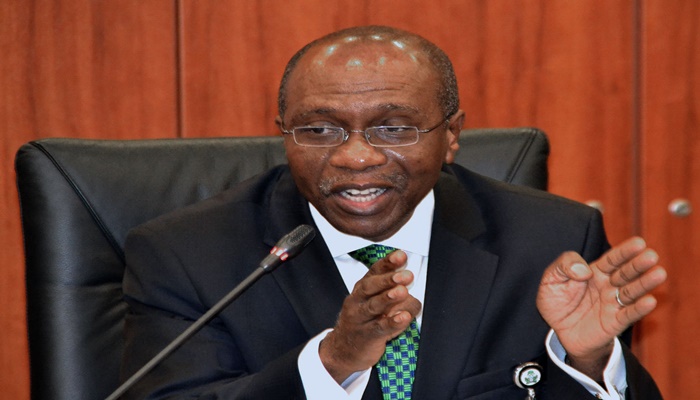CBN releases draft guidelines for regulation of foreign banks in Nigeria
The Central Bank of Nigeria (CBN) has released an exposure draft of the guidelines for the regulation of representative offices of foreign banks in Nigeria. This to solicit public comments on proposed regulations.
This was disclosed in a recent circular dated October 12, 2022, and signed by Chibuzo Efobi, director, the financial policy and regulation department.
The circular was addressed to stakeholders, the general public, and particularly the representative offices of foreign banks.
Titled: “Circular to Representative Offices of Foreign Banks in Nigeria, Stakeholders and the General Public”, the Apex bank barred foreign banks operating in Nigeria from receiving deposits locally.
According to the guidelines, an approved representative office is barred from carrying out banking business in Nigeria.
This, it said, implies that they are restricted from receiving deposits or current account, savings account or another similar account, paying or collecting cheques drawn by or paid in by customers, provision of finance or such other activity designated as banking business by the CBN.
Listing other non-permissible activities for representative offices of foreign banks, the apex bank said they must not engage in the “provision of any commercial or trading activity that may lead to the issuance of invoices for services rendered; and acceptance of orders on behalf of the foreign parent; engage directly in any financial transaction.’’
According to the circular, permissible activities include: marketing the products and services of its foreign parent or an affiliate of the foreign parent licensed and domiciled outside Nigeria.
“Carrying out research activities in Nigeria on behalf of the foreign parent.
“Serving as a liaison between the foreign parent and local banks, private institutions within Nigeria and other customers of the foreign parent based in Nigeria.
“Pursue business opportunities for the foreign parent or affiliated institutions regarding the availing and/or syndication of foreign currency-denominated loans.
“Connect banks and other financial institutions to its foreign parent; among others”, it added.
Specifying the financial requirements for foreign banks seeking to establish a representative office in Nigeria, the CBN said they are required to pay N5 million non-refundable application fee and N10 million non-refundable licensing fee – N15 million in total.
On power of supervision, the CBN said it shall have free, full, unfettered and timely access to the internal systems, documents, reports, records, staff and premises of the representative office and shall exercise such powers as it may deem necessary.
“The CBN may cause an examination of the operations and affairs of the representative office to be made by its officers or such other duly qualified person as it may appoint, to assess whether the representative office is complying with the banking laws and any guidelines or instructions issued by the Bank”, it said.
The apex bank further stated that the examination of a Representative Office will be carried out periodically and risk-based, and would include, but not be limited to a review of the activities conducted, a general assessment of its management and supervision, a review of whether the office is complying with applicable laws and regulations, including any conditions placed on its operations or activities as part of the CBN’s approval of its establishment.
The circular reads in part: “The Central Bank of Nigeria (CBN) is empowered by Section 8 of the Banks and Other Financial Institutions Act 2020 (BOFIA) to mandate foreign banks to seek prior approval of the CBN before they can operate in Nigeria.
“This provision, coupled with requests from foreign banks, law firms, and financial consultants, among others, on the requirements for operating representative offices of foreign banks in Nigeria, has made it pertinent to develop guidelines prescribing the regulatory requirements.
“Accordingly, the draft guidelines have been developed to provide guidance to stakeholders, particularly foreign banks, seeking to operate in Nigeria.
“The governor of the Central Bank of Nigeria must receive a formal application from foreign banks and other financial institutions seeking to open an authorized representative office in Nigeria, along with a memorandum of understanding and proof of name reservation with the Corporate Affairs Commission amongst other documents.
“Additionally, the Central Bank of Nigeria would require that foreign banks pay a non-refundable application charge of N5,000,000 and a non-refundable license fee of N10,000,000.
“Foreign banks would not be permitted to perform services classified as banking activity in Nigeria. They would also be barred from engaging in any commercial or trading activity that could result in the production of invoices for services delivered.
“Approved Representative Offices must submit to the Director, Banking Supervision Department of the Central Bank of Nigeria, among other documents, a certificate from a recognized audit firm confirming that no income was received or accrued to the Nigeria office during the fiscal year.
“A Representative Office shall obtain the CBN’s prior clearance for employment of its prospective employees and top Management staff. A Representative Office shall inform the Bank of its proposed hours of business. No Representative Office shall be relocated or closed without the prior written approval of the Bank.
“A representative office of a foreign bank in Nigeria is a liaison office of the foreign bank licensed by the CBN, whose sole object is to market the products and services of its foreign parent as well as serve as a liaison between its foreign parent and local banks, other financial institutions, private companies and the general public.
“An exposure draft of the guidelines is hereby issued for comments and observations. The document may be accessed from the bank’s website. www.cbn.gov.ng.”
Credit: TheWill




